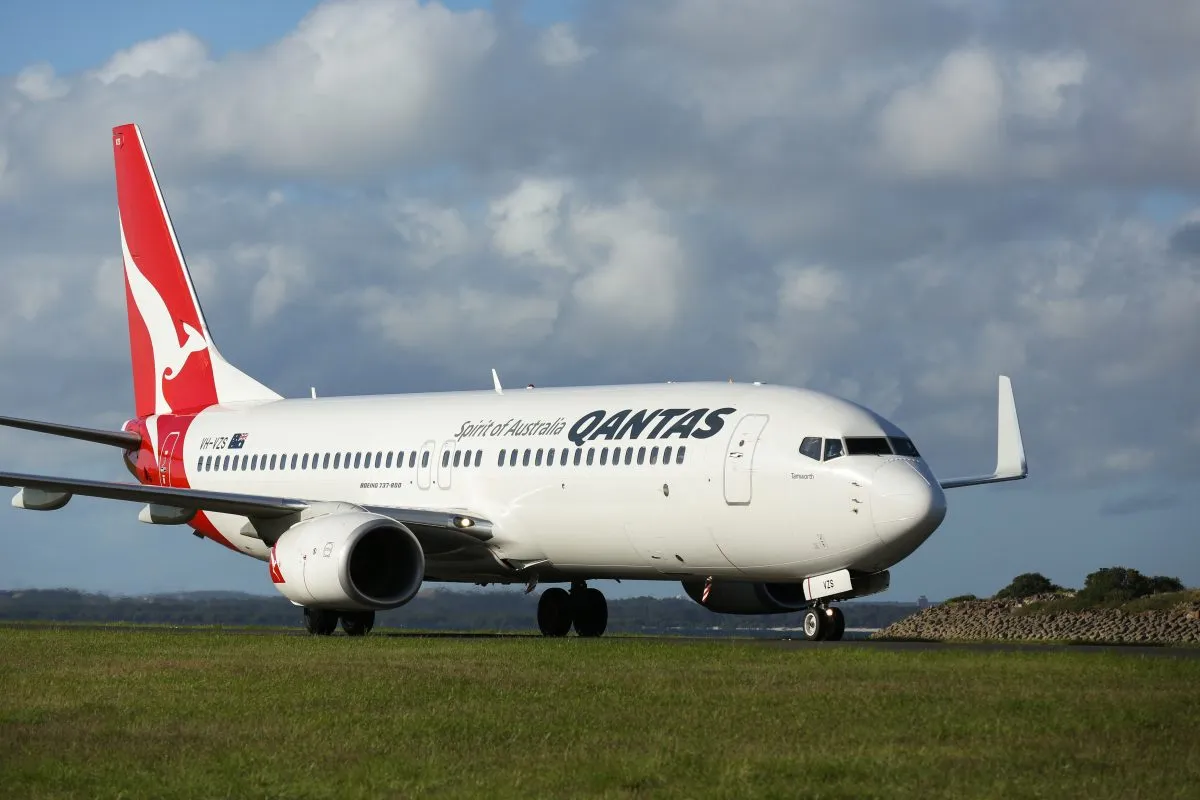
Qantas grounds three Boeing 737NGs with cracks
Oct 31, 2019

Qantas has temporarily grounded three Boeing 737NG aircraft after discovering cracks in their fuselage. This precautionary measure aims to ensure passenger safety and uphold the airline's maintenance standards. The decision follows routine inspections that revealed structural issues, prompting Qantas to take immediate action. The airline is working closely with regulators and Boeing to assess the extent of the damage and determine necessary repairs. While this grounding may lead to some disruptions in flight schedules, Qantas remains committed to maintaining the safety and reliability of its fleet, prioritizing the well-being of its passengers and crew.
In a recent development, Qantas has taken the precautionary measure of grounding three Boeing 737 Next Generation (NG) aircraft after the discovery of cracks in critical structural components. This decision underscores the airline's commitment to safety and its proactive approach to maintenance. The grounding of these aircraft has raised questions about operational impacts and the broader implications for the aviation industry.
Understanding the Boeing 737NG Cracks
The Boeing 737NG series, a popular workhorse for airlines globally, has been known for its reliability and efficiency. However, the recent findings of cracks highlight potential vulnerabilities in older aircraft. The cracks were identified during routine inspections, a testament to the importance of regular maintenance checks.
Impact on Qantas Operations
The grounding of these three aircraft raises concerns about flight schedules and capacity. Qantas operates a significant number of Boeing 737NGs in its fleet, and any reduction in available aircraft could lead to delays and cancellations. This situation emphasizes the necessity for airlines to maintain a robust maintenance program to minimize operational disruptions.
Table: Qantas Boeing 737NG Fleet Overview
| Aircraft Model | Total Fleet | Grounded Aircraft | Operational Status |
|---|---|---|---|
| Boeing 737-700 | 75 | 1 | Operational |
| Boeing 737-800 | 55 | 2 | Operational |
| Total | 130 | 3 | Grounded |
Reasons Behind Aircraft Grounding
Grounding aircraft is a common practice when structural issues arise. Airlines like Qantas prioritize passenger safety, and any structural defect must be addressed immediately. The decision to ground the three Boeing 737NGs was made after the discovery of cracks in the fuselage, which could potentially lead to more severe issues if left unaddressed.
Regulatory Oversight and Compliance
Aviation authorities such as the Federal Aviation Administration (FAA) and the Australian Transport Safety Bureau (ATSB) play a crucial role in regulating aircraft safety. Qantas's decision to ground these aircraft will likely involve close collaboration with these entities to ensure compliance with safety standards and protocols.
Future of the Boeing 737NG Series
The Boeing 737NG series has been a staple in the aviation industry for decades. However, with the introduction of newer models such as the Boeing 737 MAX series, airlines are facing the dilemma of whether to invest in older fleets or upgrade to newer technology. The recent grounding incident may accelerate discussions among airlines about fleet modernization and the retirement of aging aircraft.
Technical Analysis of Cracks in Aircraft
Cracks in aircraft structures can arise from various factors, including metal fatigue, environmental stresses, and manufacturing defects. Engineers and maintenance crews conduct thorough inspections to identify potential issues before they escalate. The discovery of cracks in the Qantas Boeing 737NGs serves as a reminder of the ongoing need for vigilance in aircraft maintenance.
Table: Factors Contributing to Aircraft Structural Issues
| Factor | Description |
|---|---|
| Metal Fatigue | Repeated stress cycles can weaken metal components over time. |
| Environmental Conditions | Exposure to extreme temperatures and humidity can impact aircraft integrity. |
| Manufacturing Defects | Errors during the manufacturing process can lead to structural vulnerabilities. |
What This Means for Passengers
For passengers, the grounding of three Boeing 737NGs may lead to increased wait times and potential flight cancellations. Qantas has assured its customers that it is working diligently to minimize disruptions and will keep them informed about any changes to their travel plans. Passengers are encouraged to check their flight status regularly and stay updated through Qantas's official communication channels.
Conclusion: The Path Ahead for Qantas
As Qantas navigates the challenges posed by the grounding of these Boeing 737NGs, the airline's commitment to safety remains paramount. This incident not only affects Qantas but also serves as a cautionary tale for the entire aviation industry. Continuous monitoring, regular maintenance, and adherence to safety protocols will be vital to ensuring that such issues are caught early, maintaining passenger trust and confidence in air travel.
In summary, the grounding of the three Boeing 737NGs due to cracks is a significant event that highlights the importance of aircraft maintenance and safety oversight in the aviation sector. As the industry evolves, airlines must be prepared to adapt to new challenges, ensuring that they prioritize passenger safety above all else.
Related Articles

Explore Thailand: The Best Islands to Visit for Paradise, Adventure, and Relaxation

The Ultimate Guide to the Best Islands in Thailand for Your Next Getaway

Do babies need passports? How to get a passport for a newborn

How to get a U.S. passport fast: here’s how to expedite the process

What is Mobile Passport Control: 5 reasons why you should use it

SENTRI vs. Global Entry: A detailed guide

Do you need a passport to go to the Bahamas? Let’s find out

Do you need a passport to go to Mexico? A detailed guide

Do you need a passport to go to Canada? We got the answer

Do You Need a Passport for a Cruise: An Essential Travel Guide

Booster Seat Requirements: All the Rules to Follow in Your Rental Car

What Are the World’s Most Powerful Passports, and How Does Yours Rank?

How to Take a Passport Photo at Home: A Helpful Guide

You've got to have heart! Southwest's new livery

Your opinion: Should water be free on low cost carriers?

Young women bolder than guys as solo travellers
